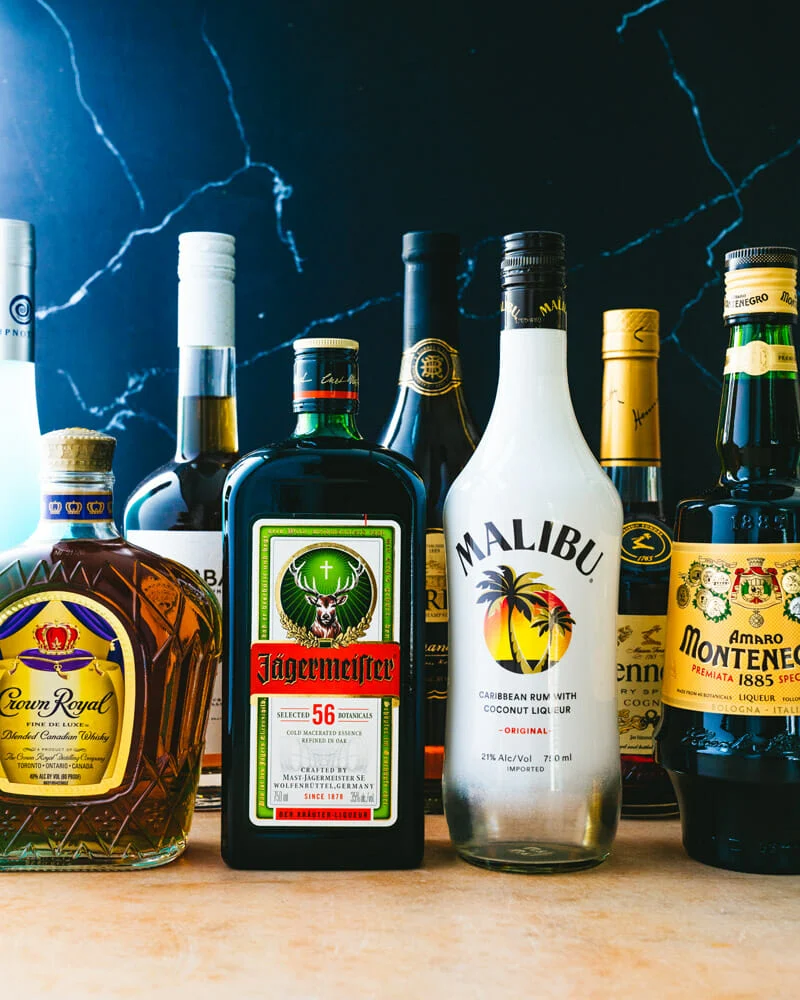THINKING OF DITCHING ALCOHOL? HOW TO MAKE A PLAN THAT WORKS FOR YOU
These tips will help you make a plan that suits your needs, whether you are looking to cut back on spending or take a break for a while.
1. Examine alcohol health effects
Alcohol can have several adverse effects on your health. Even moderate drinking can make you feel groggy, foggy, or hungover. You will notice other health effects as you drink more.
- Disturbed Sleep
- digestive issues
- Memory problems
- Increased anxiety and depression.
- Disagreements and conflict with loved ones
2. Spend some time with your alcohol-related relationship.
The first step to giving up something is to identify why.
Find out how much you drink.
You might not think you rely on alcohol, but you are still curious if you may be drinking excessively.
You don’t need cravings if you do not drink. However, “a quick beverage” can quickly turn into three to four drinks. It’s difficult to stop having fun, especially when you have friends who are having the same amount.
Consider why you drink alcohol and how to identify your triggers.
Perhaps your concerns are more about your reasons for drinking than the amount. Many people drink alcohol to ease stress or reduce their emotional pain. Drinking alcohol to alleviate tension before a date or during difficult conversations is common.
It’s not easy to deal with challenges without alcohol. But it’s worth considering whether drinking might prevent you from using more effective ways to manage your emotions.
She continues to explain that understanding the causes of alcohol abuse can help you find more effective ways to deal with them. These are some common alcohol triggers:
- relationship stress
- Social events
- Trouble at work
- insomnia
You can plan to manage your urge to drink by becoming more aware of your alcohol triggers.
3. Take into account your approach.
It’s possible that you already know that you want to quit drinking. Maybe you aren’t sure if you can stop entirely or don’t want the commitment.
It’s perfectly okay.
You can have a better relationship with alcohol without having to be sober.
Moderation Management
Turner uses moderation management as an alternative to complete sobriety.
It is focused on reducing alcohol consumption and the potential harm it can cause. The emphasis is on your situation and not others.
Although complete sobriety can be a good goal, it doesn’t necessarily have to be the only goal.
Do you need help with your ultimate goal? That’s fine, too. You know that you have choices.
4. It’s worth talking about
It may be a motivator to let others know you have decided to quit drinking.
Include your loved ones.
When you quit drinking, your family and friends can offer support and encouragement.
You might encourage others to talk about their alcohol use and be open about it.
Your sibling, partner, or roommate may also consider making a change. You can support one another while simultaneously improving your motivation and accountability.
Turner stresses the importance of having a trusted friend or family member with you when attending alcohol-related events. It is often easier to decline a drink if you are not alone.
Locate a community
It can be very beneficial to build new relationships with people who choose not to drink alcohol.
Turner stresses that the more support you receive, the better.
Here are some suggestions:
- Instead of stressing out by going to happy hour with your coworkers, why not invite another coworker to go and check out the new bakery across the street?
- You can build friendships and romance with people who don’t consider drinking an essential part of your life.
- Do you miss the bar atmosphere? You can go to a sober bar and enjoy socializing without alcohol.
- Meetup is a great app for meeting people who are interested in alcohol-free activities.
What to say?
People might be curious as to why you would decline a drink.
Although you are not required to provide details, it is helpful to have a ready-to-go response.
- “I am cutting back on my health.”
- “I don’t like how drinking makes me feel.”
However, you don’t have to say more than “No, thank you.” It can make you more confident and comfortable in an alcohol-related situation.
Do not worry about what others might think. Most people will only remember a little of what you do.
It helps to keep it simple if you need to explain more to your loved ones but are still trying to figure out what to say.
- “I have been drinking a lot, but I don’t know why. I want to stop that.”
- “I find myself drinking when it isn’t necessary to face my emotions. I want to be able to work through them without alcohol.”
- “I don’t enjoy drinking, and I’m tired of drinking just because everyone else does it.”
5. Change your environment
Alcohol can be a part of your daily routine. This is especially true if you are feeling overwhelmed.
It doesn’t necessarily mean you must change your life to stop drinking altogether. But, it is possible to change your environment to avoid alcohol triggers.
Eliminate alcohol
When trying to quit, alcohol in your home can tempt you. You may need to drink, but knowing that you will have to leave your home to buy something can make it challenging to stay away.
Make sure you have non-alcoholic beverages available for your guests and yourself. To be a good host, you don’t need to serve alcohol. Allow guests to bring their alcohol with them when they leave.
Consider asking roommates to keep alcohol out of your sight and not in open spaces.
Discover a new drink you love
You can make a stand for your decision to quit drinking by choosing the right replacement beverage. While plain water may have many health benefits, it is not the most exciting option.
You can have something that is enjoyable and doesn’t leave you wanting your favorite beverage.
Try:
- Infusing Plain or Sparkling Water with chopped fruits and herbs
- Hot chocolate, apple cider, and tea can be spiced with cinnamon sticks or other spices.
- Mixing juice or lemonade and sparkling water
Change your routine to stay busy.
If you are prone to drinking at a particular time of the day, it is a good idea to do something different to distract yourself from those old habits and help you break them. It is essential to get out of your house and move.
These are some ideas to consider:
- If you often meet up with friends after work, consider going on a walk or meeting them for a casual drink in a park or other alcohol-free area.
- Why not go to a different restaurant that doesn’t offer alcohol instead of your regular place for dinner and drinks? It will be a different experience, and you won’t feel compelled to drink.
- To distract yourself from the stress of cooking at home and save money.
If your desire to drink is more in line with your mood than any other time of the day, you can have a few different coping strategies ready.
- You can try affirmations, deep breaths, or meditation to calm anxiety.
- Feeling lonely? Reach out to someone you care about or watch a favorite movie.
6. Prepare for potential alcohol detox.
Alcohol detox is a process whereby people who have a greater dependency on alcohol can drastically reduce or stop drinking. Your body starts to eliminate alcohol from your system. The symptoms of alcohol withdrawal can be caused by detox.
- Anxiety
- Kopfschmerz
- Fatigue
- insomnia
- Changes in mood
- Shakes
- It is essential to sweat
Talk to your healthcare provider if you are concerned that you might experience detox symptoms from quitting smoking or cutting down. You can work together to create a plan for getting through it.
7. Take time to take care of yourself.
It can be pretty stressful to stop drinking. If alcohol is used to treat emotional distress, it can make success seem more impossible.
It is common to feel overwhelmed when making significant changes. However, good self-care practices can help you manage your overwhelming feelings and take proper care of your body.
Prioritize Wellness
Being at your best can increase physical resilience and emotional strength. This will help you weather the temptation to drink.
You are making a significant step towards improving your physical health by quitting alcohol. You’ll feel more motivated and energized to continue your progress as you see the health benefits.
Additional tips:
- Keep hydrated
- Regular, balanced meals are essential. Include foods that increase energy or improve mood.
- If you are able, engage in regular physical activity. You can try hiking, dancing, and roller-skating for fun ways to keep active.
- Make better sleep a priority. Seven to nine hours is a good goal for most adults.
Rediscover hobbies
To deal with boredom, many people drink alcohol. While hobbies distract from the desire to drink, they can also help you relax – something everyone should do.
You have the opportunity to revive an old hobby if you are feeling nostalgic.
It’s easier than ever to acquire new skills and connect with others through technology, even if you aren’t physically able to.
You might try:
- DIY projects for the home
- Models for building and painting
- Board or video games
- volunteering
- Relaxing with a good book
Keep a journal
You might not be interested in writing down your thoughts. Journaling is a great way to track your feelings while quitting drinking.
Writing down what you find most challenging and when you drink the most can help you to see patterns that give you more insight into your alcohol consumption.
It’s easy to see that drinking is not the solution to the problem you are trying to solve.
You can also use a journal to record why you want to stop drinking and brainstorm alternatives.
Find new tools to help you cope.
Once you have identified the reasons you drink, you will be able to identify new ways to address them.
The circumstances often determine the most effective coping strategy.
- You might turn to it for comfort or an album when you feel sad.
- You can drink alcohol to avoid conflict in your relationship or stress. Or, you can vent to someone you love and reconnect with your partner.
- You might consider ways to connect with distant friends or build new friendships if loneliness makes you want to drink.
8. Find out why
There are likely obstacles in your path that encourage you to drink. Remember why you quit drinking or cut down on alcohol. Write them down and keep notes so that you can refer to them when you are in need.
9. Get support
It can be difficult to quit alcohol alone, but it is possible.
Professional support is available if you need help sticking to your goals or extra guidance.
Talking about your problems with your primary care provider is a good idea if you are comfortable. A therapist may be an option if you are uncomfortable talking to your healthcare provider.




Post Comment